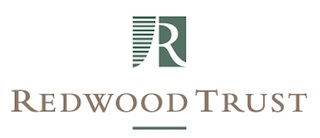First Jumbo Mortgage Securitization of 2011! And A Word On The Budget.
 The jumbo market is making baby steps. Redwood Trust Inc. is marketing a $280 million residential mortgage-backed security, the first private deal of 2011, backed by a mix of fixed-rate and adjustable-rate mortgages. According to news on the issue, the average loan size is $978,000 and the average FICO score is 775 – pretty similar to last year’s Redwood deal made up of Citi loans.
The jumbo market is making baby steps. Redwood Trust Inc. is marketing a $280 million residential mortgage-backed security, the first private deal of 2011, backed by a mix of fixed-rate and adjustable-rate mortgages. According to news on the issue, the average loan size is $978,000 and the average FICO score is 775 – pretty similar to last year’s Redwood deal made up of Citi loans.
Let’s hope that they have some loans to fill those securities! Last week mortgage applications dropped 9.5% to a level last seen in November 2008. Refinancing activity was down 11.4%, and now accounts for 64% of new apps, and purchases were down about 6%. Braver Stern Securities wrote that, “with conforming mortgage rates at (these levels), almost 60% of the FH/FN mortgage universe does not have an economic incentive to refinance at the current time. For FHA borrowers this number is just over 85%.”
A word on the Federal budget
I have never seen a Federal Budget in person, and something tells me that I am not missing much. Analysts have happily plunged into dissecting the 2012 budget, however, which begins in October (for some reason) and details are coming out on its housing & mortgage numbers. The cost of rescuing mortgage giants Fannie Mae and Freddie Mac is likely to sink to nearly half of the current cost over the next decade, for example. The budget estimates keeping Fannie and Freddie afloat will cost $73 billion by 2021, reflecting dividends paid back to the Treasury Department and is 45% lower than the $131 billion cost to date and much lower than outside estimates. Fannie and Freddie must pay 10% dividends on the quarterly cash infusions they receive from the Treasury, which some argue should just be forgiven, thus saving them a tremendous amount of ducats. In fact, the White House estimates that the companies will be paying back more in dividends by 2013 than they receive in cash infusions and from 2014 on, the companies are expected to need no more funding. Turning to HUD, the budget proposal outlines a $48 billion spending program for fiscal year 2012, an increase of more than $900 million from 2010.
